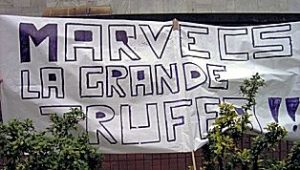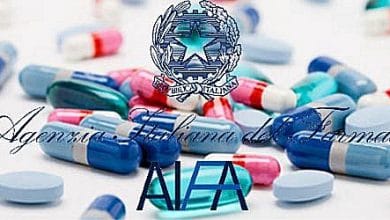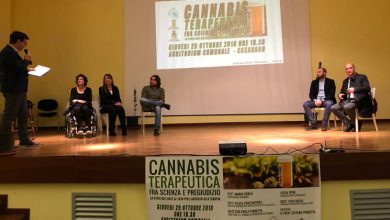
The employment crisis that has hit the Science Representatives sector is unprecedented. Not even in '94, when there was the reclassification of drugs, so many jobs were lost! 12,000, it is estimated, in the last 2 years. But why did it come to this? In the period 97/05 the main objective of many pharmaceutical companies, to increase sales, was an increase in the frequency of information visits, especially for certain categories/products with high growth and profit potential. Such a high frequency of visits has led the doctor not to recognize the value of the ISF's activity and has made himself less available to give him his time. The traditional visit has become less and less a lever of differentiation and consequently the productivity of visits is in sharp decline: doctors only remember the 4% of all the visits made by the ISF (data communicated at an About Pharma conference on scientific information in September 2006) .
the frequency of information visits, especially for certain categories/products with high growth and profit potential. Such a high frequency of visits has led the doctor not to recognize the value of the ISF's activity and has made himself less available to give him his time. The traditional visit has become less and less a lever of differentiation and consequently the productivity of visits is in sharp decline: doctors only remember the 4% of all the visits made by the ISF (data communicated at an About Pharma conference on scientific information in September 2006) .
At the same time, on the one hand, the prescriptive role of the specialist doctor becomes stronger, and on the other, also the increasingly active role that an increasing number of pharmacies intend to play in influencing patients' choices. But it is above all the institutions that govern the SSR that play an increasingly strong role in influencing the prescriptive dynamics. The roles and weights of the various players who contribute to determining the prescription are therefore changing, but the general practitioner weighs less and less. Some factors have reduced and will reduce in the future the possibility of obtaining an adequate differentiation of one's products based on a high frequency rate of visits to the medical professional: regional regulations that limit the number of visits of the ISF, different ways of managing information visits , New Consolidated Text (Legislative Decree 219/06).
The market for drugs pertaining to general practitioners then became increasingly less attractive, both due to the inability of the regulatory authorities to distinguish truly innovative drugs to be remunerated differently from the others, and due to indiscriminate interventions to contain the pharmaceutical expenditure on the ministerial and regional sides, both due to the progressive introduction of generic drugs whose management is influenced by the role of the pharmacist and the discounts applied to him. Therefore, as the prescriptive role of the specialist doctor becomes increasingly strong, the new products introduced on the market are increasingly oriented towards much more profitable specialist and hospital management areas which require a very small number of ISFs and much lower fixed costs. In this context, the ISFs, not requalified by the establishment of a Register or by an adequate profile in Legislative Decree 219, and reduced to a pure profit instrument, will serve less and less. A few FSIs who will attend specialized centres, and others, with atypical or flexible contracts, to be used for purely commercial purposes will suffice.
 Today many pharmaceutical companies adapt to the framework described above and "refocus" their strategies. The operation involves the divestment or sharp reduction of the ISF employed on general practitioners (the so-called "primary care" lines). The consequence of this is the loss of work for those 12,000 informants we mentioned at the beginning. It is true that the number of ISF was hypertrophic and a reduction was foreseeable, but now we are falling into the opposite excess. Beyond the job loss of so many people (which is in itself extremely serious), what lies ahead is a disturbing scenario: the market for drugs for primary care will be less and less innovative (research costs a lot and the remuneration is no longer attractive) and will be dominated by old products, but above all the general practitioner will have had to effectively abdicate his role, which should instead be central in a health service. The financial and economic crisis that has engulfed the globalized world since 2008 has relatively little to do with it.
Today many pharmaceutical companies adapt to the framework described above and "refocus" their strategies. The operation involves the divestment or sharp reduction of the ISF employed on general practitioners (the so-called "primary care" lines). The consequence of this is the loss of work for those 12,000 informants we mentioned at the beginning. It is true that the number of ISF was hypertrophic and a reduction was foreseeable, but now we are falling into the opposite excess. Beyond the job loss of so many people (which is in itself extremely serious), what lies ahead is a disturbing scenario: the market for drugs for primary care will be less and less innovative (research costs a lot and the remuneration is no longer attractive) and will be dominated by old products, but above all the general practitioner will have had to effectively abdicate his role, which should instead be central in a health service. The financial and economic crisis that has engulfed the globalized world since 2008 has relatively little to do with it.
The data on the sale of medicines in Italy in 2008, disclosed by OsMed (National Observatory on the use of Medicines) to the Istituto Superiore di Sanità, show no decreases, indeed from 2000 to 2008 the per capita consumption of medicines increased by 60% . Globalization, understood as the financialization of the economy, the reform of the labor market, the attack on trade unions, the liberalization of capital movements, instead enters the philosophy that underlies many decisions and choices of pharmaceutical companies. This philosophy has transformed companies from, so to speak, social institutions in which the interests of workers, owners, local communities, the State, suppliers intertwined, into pure cash flows. The dominant criterion is the maximization of shareholder value. The only thing that matters to the shareholder is the market value of the company as indicated by the share price. The interests of workers, suppliers, local communities are irrelevant. Just as irrelevant are the criteria that once indicated the success of a company, such as the size achieved, turnover, number of employees, technological leadership, market position.
 It is evident that what is spent on distributing dividends, interest, "stock options", is not available for productive investments, least of all in research and development since the latter promise relatively distant and uncertain returns. Investors can't wait that long. The company must continuously produce profits and capital gains. Hence the acquisitions and mergers to compensate for the research deficit, hence the not hiring employees with stable contracts, hence the pressure for workers and unions to demonstrate "wage moderation", hence the closure of production units whose performance, even if high, it is lower than the average of competing companies, hence the recourse to transfers of business units, mobility and collective redundancies. It is no coincidence that when operations of this kind are announced, the shares of the company that made the announcement go up.
It is evident that what is spent on distributing dividends, interest, "stock options", is not available for productive investments, least of all in research and development since the latter promise relatively distant and uncertain returns. Investors can't wait that long. The company must continuously produce profits and capital gains. Hence the acquisitions and mergers to compensate for the research deficit, hence the not hiring employees with stable contracts, hence the pressure for workers and unions to demonstrate "wage moderation", hence the closure of production units whose performance, even if high, it is lower than the average of competing companies, hence the recourse to transfers of business units, mobility and collective redundancies. It is no coincidence that when operations of this kind are announced, the shares of the company that made the announcement go up.
It is no coincidence that stocks in the “Pharma” sector have gained 14% since the beginning of the year. In this scenario, drug sales representatives are the ones who pay the highest price in terms of employment. Even if the number of layoffs, redundancies, redundancy payments, business unit transfers is high, it goes almost completely unnoticed by the general public. If we talk about unemployment we talk about it in general terms as a consequence of the economic crisis and never of our particular situation. The unions show all their weakness by going into negotiations to obtain economic incentives as much as possible, but they hardly succeed in safeguarding employment. We ISF are individualists, resigned and we are unable to affect the trade unions, Farmindustria or the state or health authorities. It's time to react. This state of affairs is no longer tolerable.
It will therefore be necessary to ensure that the authorities take note of this state of affairs and intervene to declare a crisis in the sector and favor the conditions for creating job alternatives linked to professionalism. It will be necessary to safeguard employment and it will also be necessary to redesign Legislative Decree 219, which penalizes us precisely on the employment level. It will be necessary to redesign the rules that guarantee as much as possible the professionalism based on ethics and transparency of the ISFs to ensure that the same ISFs assume that role of Scientific Representatives on Drugs that is useful to both the doctor and the patient.
 Angelo Dazzi – AIISF National President – November 2009
Angelo Dazzi – AIISF National President – November 2009
the informant 3 (See page 10)





